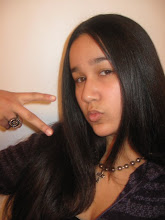Ms. Peifer
10 IB - Hour 5
25 February 2009
Macbeth LRJ #3
The third act of Macbeth begins to take the smaller, less noticeable "quirks" of Macbeth and Lady Macbeth and develops those quirks into definite characteristics that become embodied in each of their already complex personalities. Macbeth, for example, showed in act one that he had the will to murder (whether he truly thought it was the best idea or not, he did kill Duncan), but in the third act, Macbeth begins to show his first signs of being a cold-blooded murderer when thinks to himself, "They hailed him [Banquo] to a line of kings. Upon my head they placed a fruitless crown and put a barren scepter in my grip, thence to be wrenched with an unlineal hand, no son of mine succeeding...for them the gracious Duncan have I murdered...to make them kings, the seeds of Banquo kings." (Shakespeare, Macbeth, 3, i, 61-71) and then later resolves, "It is concluded . Banquo, thy soul's flight, if it find heaven, must it find out tonight." (Shakespeare, Macbeth, 3, i, 143-144) bearing in mind that Banquo is supposedly Macbeth's best friend up until this point. Also, another clue to the changing of Macbeth's character is the fact that he made arrangements to kill Banquo without Lady Macbeth's consent.
In the first two acts of Macbeth, it was apparent that Lady Macbeth had a subtle issue with being inconsistent, but her hypocritical nature becomes blatant when she says to herself, "Naught's had, all's spent, where our desire is got without content. 'Tis safer to be that which we destroy than by destruction dwell in doubtful joy" (Shakespeare, Macbeth, 3, ii, 6-9) and right after as Macbeth enters, she tells him to, "be bright and jovial among your guests tonight" (Shakespeare, Macbeth, 3 ii, 31). From this, we can also infer that Macbeth is no longer the anxious one of the two, it is now Lady Macbeth, who has all of sudden lost the brassy nerve that she once had in the previous acts.
As far as the reoccurring imagery concerning the abnormal weather patterns, no direct changes in the weather are spoken of in the third act of Macbeth, however, several references to weather are made by the characters. Like when Macbeth exclaims (to no one in particular), "Come, seeling night, scarf up the tender eye of pitiful day, and with thy bloody and invisible hand cancel and tear to pieces that great bond which keeps me pale!" (Shakespeare, Macbeth, 3, ii, 49-53) Another small reference to weather is when Banquo innocently states, "It will be rain tonight" (Shakespeare, Macbeth, 3, iii, 21) and then a murderer appears and exclaims, "Let it come down!" (Shakespeare, Macbeth, 3, iii, 22).

No comments:
Post a Comment